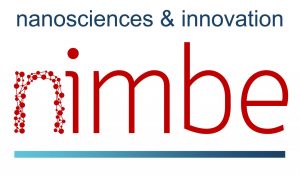Domain, Specialties : Radiochemistry
Keywords: gas handling; electron irradiation; microfabrication; gas analysis ; instrumentation
Research Unit : NIMBE / LIONS
Summary
The use of ionizing radiation has been proposed to be a low impact treatment of gaz pollutant, both from an energetic and environmental point of view. This master thesis investigates the effects of ionizing radiation (electron beams) on various gas compositions. The project examines decomposition mechanisms of pollutant gases under controlled irradiation conditions, in an electron microscope. Experimental work involves irradiation cell and gas line development, dose quantification and optimization of the effect of the reactor material.
Full description
Human activities, in particular industrial processing, are responsible for significant gas pollution, which has harmful effects on the ecosystem and is causing climate change. The main polluting gases are SOx, NOx, and volatile organic compounds, which mostly originates from the extraction and processing of oil and coal. In order to mitigate this pollution, numerous physical and chemical techniques have been developed, to either separate or transform pollutants: methods such as water absorption, solid absorption, or membrane separation. However, these different methods often involve significant energy consumption, either to ensure the effectiveness of the treatment or to regenerate the sorbent material, and can lead to secondary pollution through the production of solid or liquid waste.
In this context, the use of ionizing radiation has been proposed to be a low impact treatment of gas pollutants. Exposure of matter to ionizing radiation generates the formation of free radicals, which are highly reactive species that participate in a cascade of chemical reactions and can ultimately alter the composition of the irradiated matter. These radiolytic phenomena, which can be problematic when affecting biological organisms in an uncontrolled manner, can conversely be exploited in gas treatment if used in a controlled way. The use of ionizing radiation in the mitigation of gas pollution has been considered for about 20 years, but is now attracting growing interest due to our ability to develop less demanding radiation sources.
This master thesis investigates the effects of ionizing radiation (electron beams) on various gas compositions. The project examines decomposition mechanisms of pollutant gases under controlled irradiation conditions, in an electron microscope. Experimental work will involve irradiation cell and gas line development, electron dose quantification and optimization of the effect of the reactor material. Gas composition after irradiation will be characterized, either online by residual gas analysis (RGA) directly after irradiation, or ex situ using the various equipment available on the SUITABL platform of the LIONS laboratory.
Location
CEA Saclay, (91) Essonne, France
Internship conditions
- Internship duration: 6 months
- Level of study: Bac+5
- Training: Master 2
- Continuation in PhD thesis: No
- Application deadline: 30 novembre 2025
Experimental skills
Language : English
Useful methods and technics: Electron microscopy, gas handling, microfabrication/microfluidics, gas analysis (RGA, µ-GC).
Instrumental and experimental skills, as well as high-quality reporting are required.
Computer languages and software: Standard softwares – Word, Excel.
Links
- Web site of the laboratory: NIMBE/LIONS
- Personal web page of the supervisors:
Supervisor
Jean-Philippe RENAULT ; Corinne CHEVALLARD
Phone: +33 1 69 08 15 50 ; +33 1 69 08 54 89
Email: ;
Head of the laboratory NIMBE / LIONS
Antoine THILL; ; Tél. : +33 1 69 08 99 82


